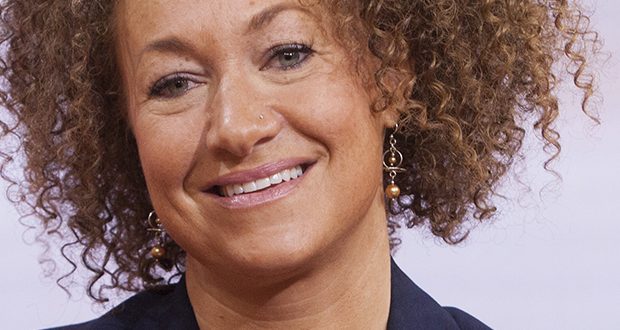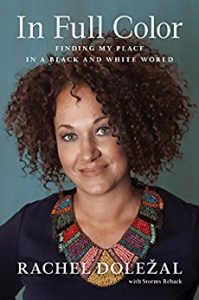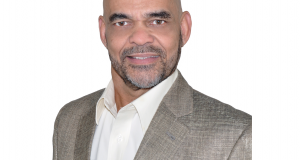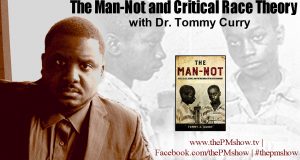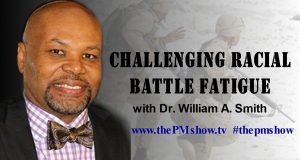
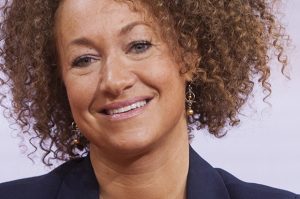 Rachel Dolezal came into the spotlight in 2015, when the media revealed that she was a white person living her life as a black woman. This gained her both praise and criticism from a lot of people, but what many don’t know is that her story starts way before she was “outed”.
Rachel Dolezal came into the spotlight in 2015, when the media revealed that she was a white person living her life as a black woman. This gained her both praise and criticism from a lot of people, but what many don’t know is that her story starts way before she was “outed”.
Rachel defined herself as Black and, despite her ancestry, gained a sense of belonging with the Black community and eventually became a part of it. She has devoted her life to promoting the cause of the Black people and helping create better opportunities for them, especially Black women. With a Master of Fine Arts from Howard University, she was an instructor at North Idaho College and Eastern Washington University and a guest lecturer at Spokane Community College, Gonzaga University, University of Idaho, and Washington State University. She’s also a licensed Intercultural Competency & Diversity Trainer and had served as the president for the NAACP Spokane Chapter.
Racial and Transracial Identities
One of the biggest reasons why Rachel Dolezal’s story caught public attention was that it touched upon the sensitive topic of race — specifically, racial identity and transracial identity.
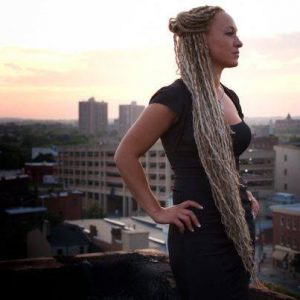
Before Rachel’s story became public, these two terms had different meanings. Racial identity allows people to be more familiar with their ethnicity, nationality, religion, and cultural history and to accept these as a part of their personality. In a world that’s obsessed with color and attractiveness, it helps POCs celebrate their skin tone as well as the phenotypical features they’re born with.
Transracial, on the other hand, historically referred to people who were adopted by parents of a different race or ethnicity and raised in a household that’s different from their own race. A Nigerian girl who was adopted by white British parents, for example, and a Korean boy who was adopted by white American parents can both be called transracial adoptees.
With the rise of Rachel’s story, these words have taken on a new nuance. People have begun to question what racial identity really is and how it’s developed. Many have started to listen to what many educators (including Historian, Lawyer, Dr. Jacqueline Battalora) have been saying: that race is a social invention without any biological basis and therefore should not be used to define people.
Conversations have also sprouted about transracial identity. Some people wonder if it’s possible to develop a different racial identity than what one is born with and grows up with. Others argue that being “transracial” in the new sense of the word is discourteous to people of color who experience racism every day and don’t have the choice to move from one race to another. Still others discuss the validity of saying that those who are transracial have similar experiences with those who are transgender.
Rachel Dolezal: In Full Color
Despite the numerous discussions that have been going on, no one can really guess what the exact story was behind Rachel Dolezal’s decision to live her life as a black woman. Because of this, Rachel decided to pen a memoir entitled “In Full Color: Finding My Place in a Black and White World”, which was published on March 28, 2017.
Through her book, she gives readers a peek into her childhood as the daughter of white evangelical parents who lived in a farm in a small town. She talks about the physical and emotional abuse she received as well as the sense of not belonging that she felt while growing up in a mostly white community. From there on, Rachel discusses her journey through college, when she finally was able to leave her home and fully express herself, to her appointment as an NAACP chapter president and renowned activist and educator. Along the way, she talks about people who have stood up for her — such as her friend Nikki, who told off some girls who were teasing Rachel for her clothes — as well as people who judge her simply for being who she really is.
Rachel also gives us an insight into her children: Izaiah (her adopted brother who is now officially her adopted son), Franklin (her son with ex-husband Kevin Moore), and Langston (who was born around a year after the media outed her biological ancestry). She outlines the joy and pain of raising Black boys in a country full of prejudice and white supremacy, as well as her struggles of ensuring a bright future for her sons now that she is currently unemployed.
In a recent interview with Philippe Matthews, Rachel Dolezal expands on some of the topics in the book, such as why she associates Christianity with whiteness and patriarchy. She discusses why she identifies as Black and not as African-American, why she rejects white superiority and hierarchy, and why she believes that race is a “political reality disguised as a biological one to leverage power and privilege”. She also explains about how the term “transracial” somehow makes it easier for other people to understand how she defines herself but actually contrasts with her belief that race is just a social construct.
Why Should You Read the Book?
More likely than not, you’ve heard about Rachel Dolezal in newspapers, magazines, radio shows, and TV shows and have formed an opinion of her based on what the media says. There’s nothing wrong with this, but don’t just stop there. Whether you want to get a clearer picture of the issue or are simply curious about transracial identity, you’ll want to know Rachel’s side of the story — and reading her book is the best way to do that.
“In Full Color” will also challenge the mindset of hating and disdaining what whiteness stands for — to the point where people of color can’t accept a white woman who identifies as a black woman and devotes her efforts to improving the Black community. It’s an opportunity for POCs to look into themselves and ask what part of them is rejecting Rachel Dolezal so much.
Reading “In Full Color: Finding My Place in a Black and White World” is a favor you should do yourself. To learn more about Rachel and get in touch with her, you can check out her Facebook page and her personal account.
New interview w/ @RachelADolezal brings unexpected aha moments. Thx 2 @revshock 4 having the conversations we need to hear! #whitesupremacy pic.twitter.com/DamRsa8HEM
— WhitePeopleWakeUp (@WhitePplWakeUp) August 29, 2017
The Philippe Matthews Show (Recurring) Programming Donation
If you enjoy the content featured on our Blog, Radio and Live Video show, please give a one-time donation or recurring donation to help with further research, production and show topics.

 Philippe Matthews Show Guru Advice, Author Reviews, Tech Reviews, Entertainment News
Philippe Matthews Show Guru Advice, Author Reviews, Tech Reviews, Entertainment News


